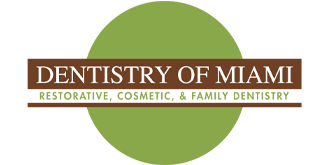There’s little more unsettling than discovering that your home has become infested with mold, especially black mold. When you discover this unwelcome guest, you’re likely going to be concerned about your respiratory health and that of your family. What you may perhaps not have considered is that the risk to your health may extend to your oral health. While the symptoms appear to be those of gingivitis and may be attributed to poor oral hygiene, this isn’t always the case. Black mold spores have been shown to be directly involved with gingivitis symptoms when the fungus is present in the home.
How Does Black Mold Affect The Gums?
An understanding of the mold reproductive cycle reveals the first clue to how it can play a role in gingivitis. Black mold, like most fungi, produces significant quantities of spores that can’t be seen with the naked eye to reproduce. These spores settle on various surfaces and form into new mold colonies if the environment is right. While the mouth isn’t a great environment for the formation of a mold colony, the spores still find their way onto our gums, cheeks, tongue, and more. These foreign invaders are responded to as if they are a hostile entity, resulting in inflammation in the affected tissues. Spores in the mouth and lungs can result in the following symptoms:
- Bleeding gums
- Swollen gums
- Burning sensations
- Coughing
- Sneezing
- Irritated skin
- Eyes that are watery and irritated
- Bronchitis
- Pneumonia
While any of these symptoms, individually, are not a direct indication that you have a black mold infestation, they can point that way. This is particularly likely in instances where there is more than one of the symptoms present. Oral health concerns may be revealed to be affected by black mold if you already know that it’s present in your home, and other explanations for your gingivitis-like symptoms aren’t likely. Black mold can also promote dry mouth in those living with it in their homes, which creates a further risk. Saliva plays a central role in preventing the formation of bacteria that cause tooth decay.
To Combat Black Mold, See Your Health Professionals Including Your Dentist
If you discover that you’ve been exposed to black mold as a result of one or more colonies in your home, your first step is going to be eliminating it. You should begin by seeking health guidance from your health care providers, including your dentist. If you want to remove it yourself, and it is determined you’re at no increased risk by doing so, find a good guide to cleaning it thoroughly. Be certain that you wear PPE when and if you should do so. There are also cleaning professionals you can hire who know all the methods to keep themselves safe and successfully eliminate it from your home.
In addition to eliminating the infestation, you should also make a point of seeing your dentist during and after the process. You may discover that your oral health concerns have not been due to insufficient oral hygiene but instead due to a fungal invader in your home.


